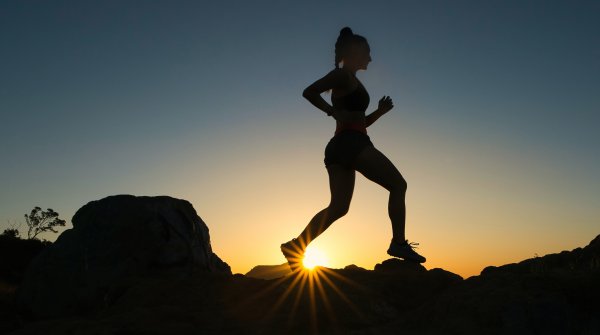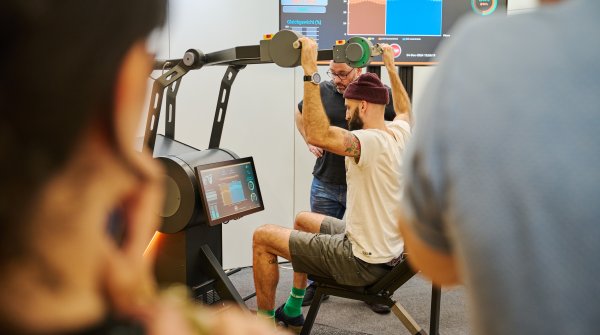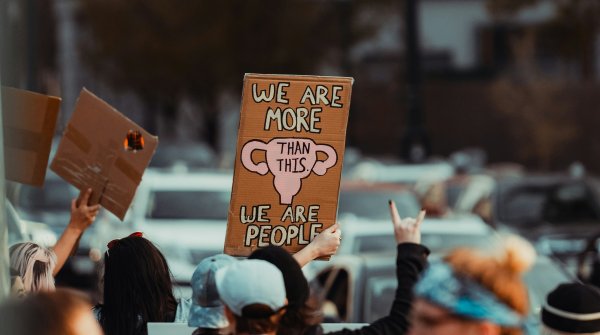- Sense of happiness remains stable in 2024
- Sport makes you happy - more than money
- Why are Scandinavians so happy?
- Intensive training at the top of the happiness scale
- Endurance sports support mental health
- Forest bathing: Happiness without much effort
- At the peak of pleasure with adventure experiences
- Organized sport lifts the mood
- Couch potato: passive sport also makes you happy
- Initiatives for happier global citizens
- Sport: Unique potential for Europe
What is happiness? Standing on a summit and breathing in the pure mountain air? Lifting weights in the gym and getting out of breath? Watching a football game on TV and cheering on your team? Yes, all of this makes us happy. But happiness can also be defined statistically: In the regularly published World Happiness Report, experts analyze where the happiest people live. The six key factors are
- social support
- income
- Health (including mental health)
- freedom
- Generosity
- Absence of corruption.
The Scandinavian countries have been at the top of the rankings for years. Germany, on the other hand, is in 24th place in 2024.
"The average perception of happiness and our country rankings, both for emotions and life evaluations, have remained remarkably stable over the three COVID-19 years," states economist John Helliwell. In 2024, the top 10 countries in the ranking remained largely unchanged compared to previous years. However, for the first time in 2024, separate rankings were compiled by age group, which in many cases deviate significantly from the overall ranking. Lithuania tops the list for children and young people under 30, while Denmark is the happiest country in the world for people over 60.
The positive effects of exercise are undisputed. The body releases more of the happiness hormones serotonin and dopamine. Physical activity also lowers stress levels, as the hormone cortisol is reduced. In 2018, scientists from Yale and Oxford Universities analyzed data from 1.2 million Americans and even came to the conclusion that sport makes people happier than money. It is therefore not surprising that there is a link between sport and happiness.
A high quality of life, a good education system, social security, a strong social network, but also the beauty and vastness of nature - all of this means that Scandinavians are happier than most of their European neighbors. Another striking fact is that people in the Scandinavian countries exercise regularly and extensively. According to the World Happiness Report, Finland, Denmark and Iceland are at the top of the list. Also at the top: Sweden and Israel - the inhabitants of both countries experience a high level of happiness.
Walking, aerobics or high-intensity interval training - which sport actually makes you happier? According to researchers at the University of Turku in Finland, the answer is quite clear: HIIT. When comparing the amount of endorphins in the body after a moderate aerobics class and a one-hour high-intensity interval training (HIIT) session, they found that the participants in the HIIT group had significantly more happiness hormones in their blood. This was confirmed by Chinese researchers from Shenzhen University in a comparison of earlier studies; however, even a ten to 30-minute workout can improve mood.
Another study by the University of Turku was able to prove that endurance sports such as running, cycling or swimming even help with severe depression. Sport has also been proven to help reduce psychological problems and improve mental health in older people. A study of women in Iran, for example, found that an eight-week Pilates course had a positive effect on the participants' depression and happiness levels.
The German doctor, cabaret artist and happiness researcher Dr. Eckart von Hirschhausen puts it in a nutshell: "When muscles cry, the brain laughs!". And in his article for the German magazine Stern magazine: "If you run more often, you even grow new brain cells. Physical training has been proven to produce a natural antidepressant, the 'VGF nerve growth factor inducible protein' - a kind of fertilizer for lettuce."
However, if you want to start slowly with physical exercise due to health problems or because you are new to sport, we recommend forest bathing. The positive effect on the psyche has now been more than confirmed: Inhaling the phytoncides (including essential oils) from the plants has a stress-reducing and blood pressure-lowering effect in humans. The heart rate also stabilizes during forest bathing and thus also contributes to calming, stress reduction and general satisfaction.
Outdoor time is simply feel-good time. Increased well-being is also linked to adventure experiences - this is the conclusion reached by professors Gill Pomfret and Carola May. In their study, the English and German scientists analyzed the most important research concepts relating to well-being and adventure experiences. So let's get out into nature and experience an adventure - such as jumping into a cold lake!
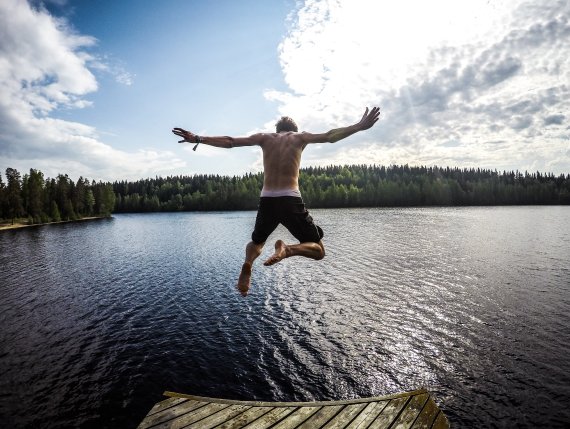
Jogging alone through the forest or playing tennis together - whether we prefer individual sports or exercising with like-minded people is a purely personal question. In New Zealand, scientists found that organized sport has unique additional benefits for well-being. According to their study, the feeling of happiness in already active young people could be further increased by organized group sports.
If you don't want to exercise at all, but instead regularly attend sporting events, enjoy watching sports programs on TV or via streaming, read sports news or talk about sports with others - this is also positively associated with happiness. At least that is the result of a Spanish study from 2021.

In Germany (which, incidentally, is the 24th happiest country in the world), the German Olympic Sports Confederation has already launched the "Recipes for Exercise" initiative. The aim is to motivate people to exercise more and lead a more active lifestyle . GPs "prescribe" more exercise to their patients using an informative leaflet and recommend participation in a sports program at one of the 14 regional sports associations.
Canada (15th place), on the other hand, relies on the "green pill on prescription": physician Dr. Melissa Lem has launched the PaRX initiative. As part of this program, healthcare providers prescribe their patients time in nature. Those who receive the prescription and live near a national park are even allowed to enter it free of charge.
In 2018, the Australian government adopted its first national sports plan (Australia is ranked 10th in the World Happiness Report). According to the then Minister for Sport Bridget McKenzie, her large-scale future paper "Sport 2030" aims to set out a clear path for how government measures can support grassroots sports organizations and increase participation rates for better health and well-being: "We need new ways to focus on and invest in sport and physical activity so that we can fulfill our potential as a nation."
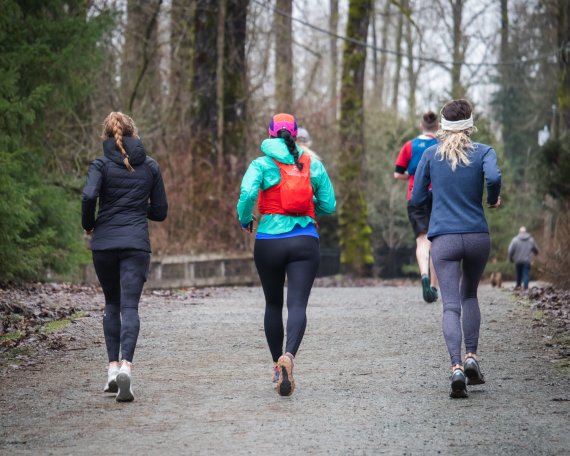
And perhaps the dissatisfied countries of Europe also have a chance to become happier. After all, as the Vice President for the Promotion of the European Way of Life, Margaritis Schinas, has recognized: "Sport alone will not solve all our problems. But apart from the very obvious benefits for our health, it has a unique potential to connect us with each other and make us feel that we belong to a community." And that definitely makes you happy!
- Awards
- Mountain sports
- Bike
- Fitness
- Health
- ISPO Munich
- Running
- Brands
- Sustainability
- Olympia
- OutDoor
- Promotion
- Sports Business
- Textrends
- Triathlon
- Water sports
- Winter sports
- eSports
- SportsTech
- OutDoor by ISPO
- Heroes
- Transformation
- Sport Fashion
- Urban Culture
- Challenges of a CEO
- Trade fairs
- Sports
- Find the Balance
- Product reviews
- Newsletter Exclusive Area
- Magazine


